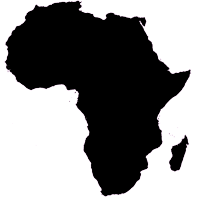 The Institute for International Education reports that in the 2016-17 academic year, there were 37,735 students from sub-Saharan Africa enrolled at colleges and universities in the United States. They made up 3.5 percent of the 1,078,822 foreign students at U.S. colleges and universities that year. The number of students from sub-Saharan Africa was up 6.7 percent from the prior year. Overall, international student enroll was up 3.4 percent
The Institute for International Education reports that in the 2016-17 academic year, there were 37,735 students from sub-Saharan Africa enrolled at colleges and universities in the United States. They made up 3.5 percent of the 1,078,822 foreign students at U.S. colleges and universities that year. The number of students from sub-Saharan Africa was up 6.7 percent from the prior year. Overall, international student enroll was up 3.4 percent
Among sub-Saharan African nations, Nigeria in 2016-17 sent the most students to American colleges and universities. That year, there were 11,710 Nigerians studying here, up by nearly 10 percent from a year ago. In the 2013-14 academic year, there were 7,921 Nigerian students at U.S. colleges and universities. Thus, over the past three years, there has been a 48 increase in Nigerian students at American universities. The number of students from Nigeria this year is more than triple the number from any other sub-Saharan African nation.
In 2016-17, Kenya ranked second, sending 3,189 students to the United States. After three years of declining enrollments, the number of students from Kenya is up 5.6 percent this year. Ghana ranked third this year, for the second year in a row. The number of students from Ghana was up 2 percent from the previous year.
South Africa, Ethiopia, Zimbabwe, Cote d’Ivoire, Rwanda, Cameroon, Angola and the Democratic Republic of the Congo each had more than 1,000 students studying in the United States. Tanzania and Uganda both sent more than 750 students to study at U.S. colleges and universities. Senegal and Burkina Faso each sent more than 500 students to study abroad in the United States.
All told, 51 nations from sub-Saharan Africa had college students studying in the U.S. during the 2016-17 academic year.
Undoubtedly, some of these students from sub-Saharan Africa nations such as Namibia, South Africa, and Zimbabwe are White, but there is no data to report on the racial or ethnic makeup of this group of African students at U.S. colleges and universities.

